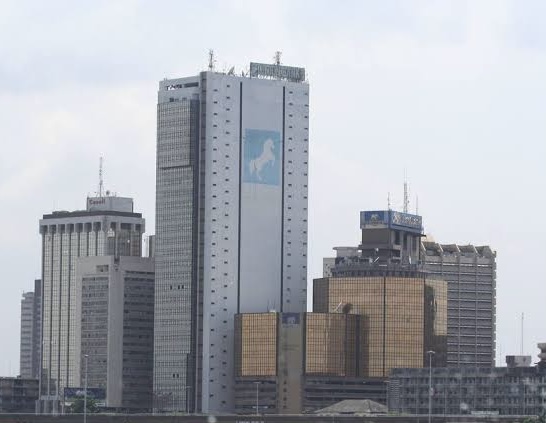
Outsourcing is now woven into factory life across Nigeria—on production lines, in warehouses, and along last-mile logistics. It buys flexibility and scale. But the everyday experience of outsourced workers often exposes gaps that quietly erode motivation, quality, and retention. Here’s a clear-eyed look at the big issues and what plant leaders can fix—kept practical, not academic, and grounded with footnotes.
Wage disparities that feed churn
Across factory floors, outsourced workers typically earn less than permanent colleagues doing similar tasks. The result is predictable: lower morale and higher quit rates.¹ Meanwhile, formal “wage jobs” remain a minority of Nigeria’s labour market—only a small share of workers are in wage employment—which helps explain why many shop-floor roles sit outside stronger contractual protections.² Nigeria also approved a new national minimum wage in 2024; good in principle, but coverage and enforcement are uneven where third-party contracting is common.³ ⁴
Insecurity and weak “voice”
Where contracts are short or channelled through vendors, workers face fuzzier terms, shakier grievance routes, and more fear of termination. On the line, that shows up as under-reporting of near misses, reluctance to challenge unsafe pacing, and quiet frustration over benefits—behaviours that harm quality and safety.⁵ ⁶
Low task identity, low discretionary effort
Outsourced operatives are less likely to “own” a complete, meaningful piece of work. In a line environment, that dulls engagement in changeovers, troubleshooting, and continuous improvement. The fix is job design: clearer cell ownership, end-to-end checks, and shared wins.⁷
Logistics outsourcing works—when governed
Handing off transport and depot moves can raise service and reduce cost—if the partnership is tightly managed. Where SLAs are vague and oversight is light, plants see the flip side: hidden costs, QA drift, and cultural misfit. The value lives in the governance, not the contract wording.⁸ ⁹
Thematic assessment: public-review signals on outsourced/contract staff
Signals below come only from Nigerian employee-review pages (principally Indeed/Glassdoor). They are anecdotal and role-specific; treat them as indicators, not audits.
| Company | What public reviews explicitly say about outsourced/contract staff (plus general welfare signals) | Indicative signal |
| Nestlé Nigeria | Multiple reviews mention welfare (free lunch, staff bus); some posts say contract staff are included, others say short-term contractors feel “uncared for.”¹⁰ ¹¹ ¹² | Mixed-to-positive |
| Unilever Nigeria | Lagos plant reviews note incentives/benefits and positive culture; several comments suggest part-time/contract roles access some perks.¹³ ¹⁴ | Positive |
| Nigerian Bottling Company (Coca-Cola HBC) | Contract staff self-identify in reviews; note free lunch and machine exposure, alongside frustrations about conversion and break pressure.¹⁵ ¹⁶ | Mixed |
| Seven-Up Bottling Company | Reviews emphasize learning exposure and pressure; contract-specific remarks are sparse in public threads.¹⁷ | Mixed |
| Nigerian Breweries | One Lagos review claims contract staff receive fewer benefits than direct staff; other comments speak well of culture.¹⁸ | Mixed (anecdote vs. positives) |
| Guinness Nigeria | Frequent mentions of free meals/resources and structured process discipline; transition to new ownership in 2024 noted as HR context.¹⁹ | Positive signals; transition context |
| Flour Mills of Nigeria | Q&A thread claims “nothing for the third parties” on some benefits; other reviews mention perks for core staff.²⁰ | Concern flag (outsourced gap) |
| Crown Flour Mill (Olam Agri) | General comments about experience/pay expectations; limited explicit contract-welfare detail.²¹ | Inconclusive |
| FrieslandCampina WAMCO | Several posts allege weaker welfare/lower pay for contractors vs. core staff; others praise lunch/HMO for employees.²² ²³ | Mixed (clear concern for contractors) |
| Promasidor Nigeria | Repeated mentions of competitive pay and “great welfare package”; one note about short contract stint/pay expectations.²⁴ | Positive-with-caveat |
| PZ Cussons Nigeria | Culture/WLB positives are common; contract-specific contrasts not prominent in recent public threads.²⁵ | Inconclusive |
| Dufil Prima Foods (Indomie) | Reviews point to training/tools and occasional meal support; contract-specific details limited.²⁶ | Mixed-to-positive |
| Rite Foods | Q&A explicitly notes some roles (e.g., forklift) are contract; mixed notes on salary/WLB.²⁷ | Transparent contract disclosure |
| Lafarge Africa (Holcim) | Reviews highlight strong HSE and benefits; WLB varies by site/role; few explicit outsourced-staff remarks.²⁸ | Positive-to-mixed |
| Dangote Cement | Many positives on job security/benefits; some stress/policy concerns in Q&A; contract specifics limited.²⁹ | Mixed-to-positive |
Caveat (read first): Public reviews reflect individual experiences and can be outdated, unverified, or site-specific. Treat them as lead indicators for HR due diligence—not as definitive verdicts.
What factory HR can fix now
- Peg pay to fair bands. Keep outsourced grades within a narrow corridor of equivalent core roles for the same tasks; audit quarterly and tie increments to demonstrable skills (e.g., changeover, TPM basics).¹
- Make contracts—and voice—unmissable. Plain-language terms; posted grievance routes at the line; response-time SLAs in vendor agreements; monthly “opened → resolved” reviews with HR/QA.⁵ ⁶
- Design for task identity. Give cells clear ownership, include outsourced operatives in start-of-shift huddles and quality boards, and recognise full-team wins publicly.⁷
- Scorecard vendors by numbers. Track OTIF, defects per 1,000, near-miss reporting, and corrective-action closure; tie renewal to thresholds.⁸
- Phase transitions and link skills to ladders. Move work out in stages; align vendor training with your internal skill ladder so outsourced operatives can see and earn progression.⁹
About the Author
Dr Olufemi Ogunlowo is the Publisher of Anchor News and the CEO of Strategic Outsourcing Limited, a leading provider of personnel and business process outsourcing services in Nigeria.












